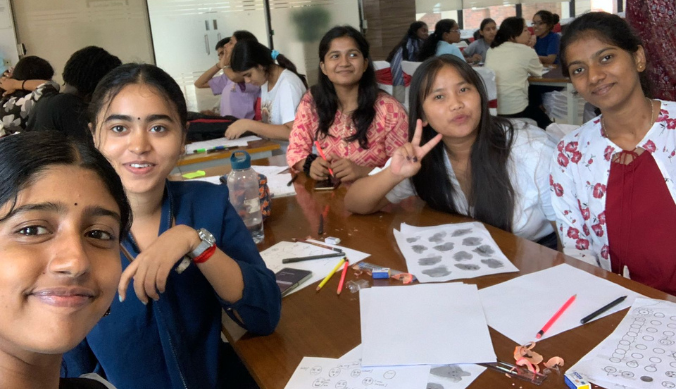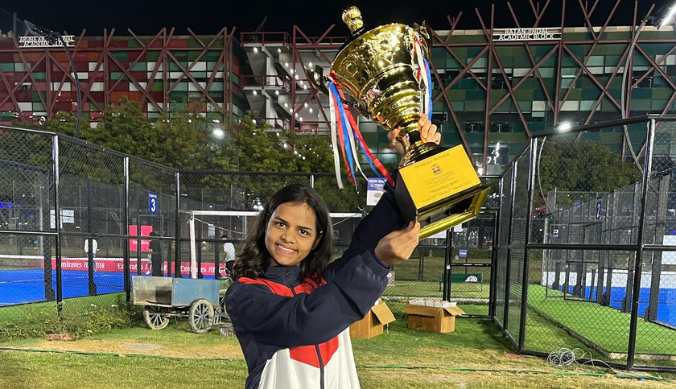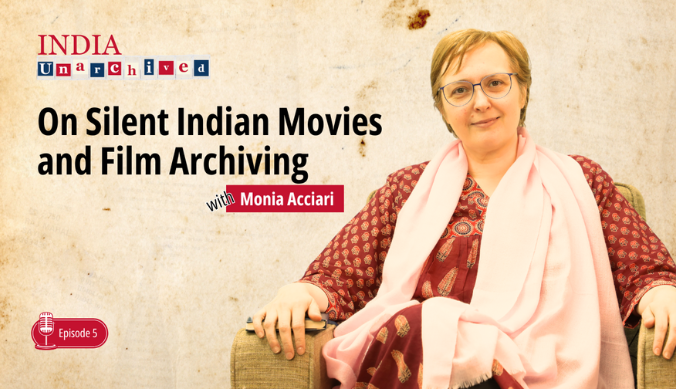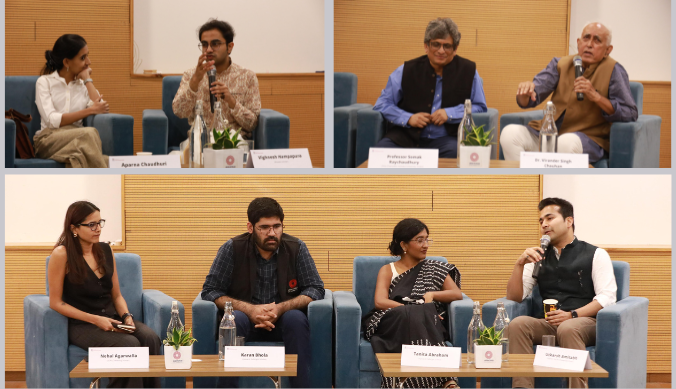Bridging Disciplines: From Engineering to Health-Tech and Policy Reform
YIF Alumnus Karan Trichal (YIF ’21) has been selected for the Schwarzman Scholars Program to pursue a Master’s in Global Affairs at Tsinghua University, Beijing.
Karan Trichal is a young professional with a wealth of experience in healthcare consulting. Over the years, his work has taken him across diverse projects, from assessing the feasibility of introducing impactful health-tech products in specific markets with a clear need, to crafting go-to-market strategies, and even developing advocacy pieces aimed at driving policy reform. Outside of his professional life, Karan is an avid reader, an occasional traveler, and an amateur writer who finds joy in capturing moments of beauty through his journal and short stories.
Karan holds an integrated dual degree (B.Tech and M.Tech) from the Indian Institute of Technology, Bombay. Pivoting towards liberal arts through Ashoka University’s Young India Fellowship (YIF), he honed a comprehensive perspective on complex societal challenges. He previously worked at the University of Chicago’s International Innovation Corps program, assisting with strategizing the digitization of public healthcare service delivery in Uttar Pradesh. His mission is to harness his multifaceted background and experiences to drive meaningful change.
Karan is the recipient of the prestigious Schwarzman Scholarship (2024-2025), a highly selective, fully funded Master’s in Global Affairs program at Tsinghua University, Beijing. Schwarzman Scholars selects students who have demonstrated exceptional leadership and academic excellence from across the globe. Karan is representing India amongst the ~140 students from 40+ countries.
We recently spoke to him about his beginnings, his journey, and aspirations. Here is what he had to share:
What drew you to the Young India Fellowship (YIF), and how has it influenced your career trajectory?
During my undergraduate years, I was just beginning to explore the world of arts and humanities when I first heard about the Young India Fellowship (YIF). As I browsed through the list of courses, the esteemed faculty, and the emphasis on academic and critical writing, I realized the programme offered a rich melange of academic experiences. I was also excited at the prospect of meeting peers from diverse backgrounds and learning from them—a unique value proposition of the Young India Fellowship (YIF).
The academic offerings introduced me to a new world where disciplines intersected beautifully. Courses such as “Totalitarian Century and the Ideology Seminar,” sharpened my critical thinking skills and provided a library of reading material that I still refer to today. Meanwhile, the critical writing course on the representation of madness was a fascinating segue into literature and art and their relationship with, and portrayal of, the world. Overall, the programme instilled in me the value of learning for its own sake—an enduring lesson that has stayed with me ever since.
The YIF has also had a profound impact on my career trajectory, offering exposure that allowed me to pivot in unexpected ways. Enabled by the Fellowship, I transitioned from for-profit consulting to working with social impact organizations and state governments on digital health initiatives. Later, I collaborated with impact-oriented startups and foundations investing in solutions to improve lives across countries. Reflecting on these experiences and outcomes from my time at YIF eventually encouraged me to apply for the Schwarzman Scholars program.
The Young India Fellowship has shaped me in many ways—some obvious, and others that I can’t even fully articulate!
What other valuable lessons and experiences did you gain from YIF that has molded you into the individual you are today?
Professionally, the YIF opened countless doors for me, instilling the confidence to pursue them fearlessly. It also granted me access to a network of individuals engaged in some of the most exciting and impactful endeavors. Through this network, I had the opportunity to contribute to development in Uttar Pradesh, where I worked with the University of Chicago’s International Innovation Corps program, spearheading the digitization of public healthcare service delivery in Uttar Pradesh, to strengthen the public health system through the introduction of technology. Spending time in the field – specifically in public hospitals in remote corners of the state – to develop training plans for health officers was reminiscent of the public policy and design thinking courses I took during YIF. This same network also led me to a role driving market entry and business development for impactful startups in African markets, where a documented need for the solution was clear.
Personally—and most importantly—I found some of my closest friendships through the program. These are people who have stood by me through lows, celebrated my highs, and helped me grow as an individual, grounding me in both turbulent and tranquil times. The totality of this experience has set me on a path of self-learning and intellectual growth, enabling me to engage more meaningfully with others and the world around me.
Could you elaborate on the impactful work you have done in the healthcare sector?
During my time with the International Innovation Corps’s Lucknow project, our mission was threefold: to assist in formulating and conceptualizing critical thought pieces around the digitization of Uttar Pradesh’s public health ecosystem; to draft a sustainable capacity-building strategy for public health professionals, ensuring a smooth adoption of digital health in the state; and to support the government’s efforts in implementing this transformation. This charter took our team across the state to more than 8 districts and 14 district hospitals to test the tools and strategies we came up with; meet prominent stakeholders in the state government; and work on strategic pieces that would eventually form the backbone of the digitization efforts in the state.
This experience was as much a cultural immersion as it was a professional journey. Stepping into the nonprofit and social impact space was a steep learning curve, but one that brought invaluable lessons. More than anything, learning to collaborate with the government, visiting smaller towns in the state, and engaging with public health hospitals gave this work a depth that is often absent in the world of analytics and strategy. Speaking directly with the public health professionals—the intended beneficiaries of our interventions—added a weight of responsibility and purpose to the entire endeavor.
Given the novelty and scale of the experience, it’s no surprise that I walked away with more than a few key takeaways. One of the things that I look back at the most, while continuing to work in the development sector, is the complicated system in which we operate. Given the generally ambiguous nature of work and the layers of stakeholders to navigate, one can sometimes lose sight of the vision and mission in the mires of data, strategy, and stakeholder management. However, it is imperative to keep sight of the ultimate stakeholder – the people – and the vision – creating an impact – to keep soldiering on. Consequently, it is also important to be cognizant of systems and machineries larger than ourselves at play, making it important to strike a balance as to how much meaning we attach to, and derive from, our work.
What are your aspirations and future goals?
I aim to leverage my multidisciplinary background and expertise in healthcare to create meaningful impact in this critical space. Spending a year in China provides a unique opportunity to study an exceptionally efficient and highly digitized healthcare system. I am confident that the insights gained during this time can be applied to drive improvements in healthcare systems across other low- and middle-income countries. At a personal level, I aim to continue my journey of learning and growth by reading, experiencing, and engaging more – with China for this year, and the world around me in general.
——————-
Karan Trichal is a Development Sector Consultant and Young India Fellow from the Class of 2021. He has over 3 years of experience in healthcare settings. His mission is to harness his multifaceted background and experiences to drive meaningful change.
Study at Ashoka













